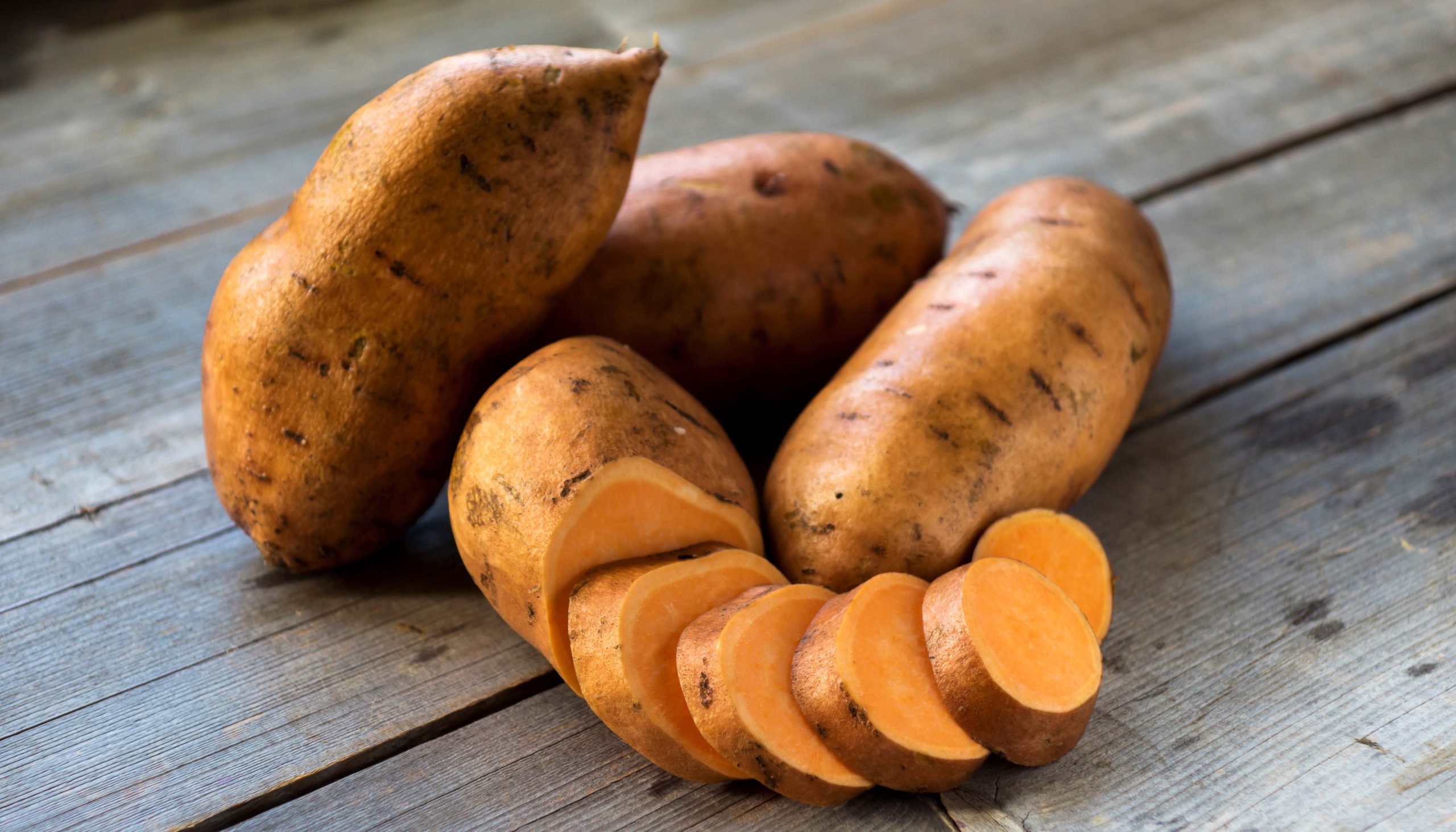Potatoes vs. Sweet Potatoes: Root Vegetables for Cancer Prevention

No winter vegetable stew is complete without a solid variety of root vegetables – especially the classic yet versatile potato!
Potatoes are a root vegetable, which means the part that grows underground is consumed by humans rather than the above-ground part of the plant. Think potatoes, turnips, and carrots as opposed to corn or peas.
While root vegetables are dearly loved, few people know the massive benefits that accompany a hearty root vegetable. These nutrient-rich plants have a high supply of carotenoids, an organic pigment whose anti-cancer effects were proven by Helmut Sies, M.D., an NFCR-funded scientist. Carotenoids are understood to decrease the risk of eye disease and even certain cancers and help protect healthy cells against mutation. This gives them the power to reduce the risk of cancer development.
Vitamin C, discovered by NFCR’s co-founder, Albert Szent-Györgyi, Ph.D., is also a potent antioxidant that can protect healthy cells from mutation. It is one of the most common vitamins found in root vegetables. In addition to protecting healthy cells, vitamin C is also believed to reduce blood pressure, boost the immune system, and even prevent iron deficiencies.
So when it comes to America’s favorite root vegetable – the potato – how do you yield the maximum nutritional benefit?
First, pick your potato.
The sweet potato and classic potato are in a neck and neck battle when it comes to nutrients.
Sweet potatoes are rich in fiber, vitamin C, manganese, and vitamin A and are a good source of several antioxidants. Several research teams have concluded that eating four grams of white sweet potato extract each day for 12 weeks improved blood sugar control in people with diabetes.
Some studies also suggest that this root vegetable may also improve immune function, protect against vision loss, and support skin health due to its vitamin A content.
Similarly, classic potatoes are also very nutritious, packing a good chunk of fiber, vitamin C, vitamin B6, potassium, and manganese. Potatoes that have been cooked and cooled are also high in resistant starch, a type of starch that passes undigested through your digestive tract and helps feed your beneficial gut bacteria.
Next – pick your method.
Not all versions of potato dishes are made equal. Fried potatoes, for example, are often high in fat, salt, and calories and lack some of the nutritional benefits seen in other potato dishes.
Whether using sweet potato or a classic potato, opt for baked, boiled, or steamed. These methods of cooking/baking will yield the most significant overall nutritional value. Potatoes can be eaten plain (like the classic baked potato), boiled (in stews), or as a side dish.
Curious about what other foods are packed with nutrients and antioxidants? Check out the NFCR Cancer-Fighting Food blog!
Additional Reads You May Enjoy:
5 Exotic Fruits That Fight Cancer & Where You Need to Travel to Try Them
Can an Apple a Day Help Keep Cancer Away?
Hearty & Healthy Recipe: Vegetarian Wellington
Stay connected with the cancer community! Receive NFCR’s monthly e-newsletter and blogs featuring stories of inspiration, support resources, cancer prevention tips, and more. Sign up here.











